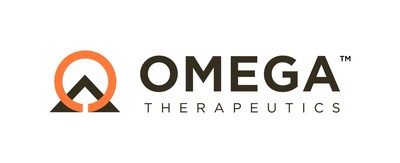Omega Therapeutics Announces Strategic Research Collaboration with Stanford University School of Medicine
Omega Therapeutics (Nasdaq: OMGA) announced a strategic collaboration with Stanford University School of Medicine to explore therapeutic potential of its OMEGA Epigenomic Programming™ platform in ocular diseases. This partnership aims to identify novel ocular targets for Omega Epigenomic Controllers (OECs) through research led by Dr. Albert Wu and other ophthalmology experts. CEO Mahesh Karande stated this collaboration expands their reach in regenerative medicine and inflammation. Financial terms remain undisclosed.
- Strategic collaboration with Stanford University enhances Omega's research capabilities in ocular diseases.
- Potential expansion of OMEGA platform applications in regenerative medicine and inflammation.
- No financial terms disclosed, raising concerns about potential costs or funding requirements for the collaboration.
- The novel nature of epigenomic therapies carries inherent risks, including regulatory hurdles and development uncertainties.
Insights
Analyzing...
CAMBRIDGE, Mass., Oct. 14, 2021 /PRNewswire/ -- Omega Therapeutics, Inc. (Nasdaq: OMGA) ("Omega"), a development-stage biotechnology company pioneering the first systematic approach to use mRNA therapeutics as programmable epigenetic medicines by leveraging its OMEGA Epigenomic Programing™ platform, today announced a strategic research collaboration with researchers at the Stanford University School of Medicine to explore the therapeutic potential of Omega Epigenomic Controllers (OECs) to control ocular disease genes associated with inflammation or regeneration of ocular tissues.
Under the terms of the collaboration, Omega and members of the Ophthalmology Department of Stanford University School of Medicine will use the OMEGA Epigenomic Programming platform to discover and research novel ocular targets for potential future OEC development candidates. Albert Wu, M.D., Ph.D., FACS, Associate Professor of Ophthalmology, will serve as principal investigator. Other contributors will include Jeffrey Goldberg, M.D., Ph.D., Professor and Chair of Ophthalmology, and Michael Kapiloff, M.D., Ph.D., Associate Professor (Research) of Ophthalmology.
"Through this research collaboration, we aim to expand the reach of our OMEGA platform within regenerative medicine, immunology, and inflammation with ocular disease targets," said Mahesh Karande, President and Chief Executive Officer of Omega Therapeutics. "We will continue exploration of the broad potential of our disruptive platform and OECs, our new class of mRNA therapeutics as programmable epigenetic medicines."
Detailed financial terms of the collaboration were not disclosed.
About Omega Therapeutics
Omega Therapeutics is a development-stage biotechnology company pioneering the first systematic approach to use mRNA therapeutics as programmable epigenetic medicines by leveraging its OMEGA Epigenomic Programming™ platform. The OMEGA platform harnesses the power of epigenetics, the mechanism that controls gene expression and every aspect of an organism's life from cell genesis, growth and differentiation to cell death. The OMEGA platform enables control of fundamental epigenetic processes to correct the root cause of disease by returning aberrant gene expression to a normal range without altering native nucleic acid sequences. Omega's engineered, modular, and programmable mRNA-encoded epigenetic medicines, Omega Epigenomic Controllers™, target specific intervention points amongst the thousands of mapped and validated novel DNA-sequence-based epigenomic loci to durably tune single or multiple genes to treat and cure disease through Precision Genomic Control™. Omega is currently advancing a broad pipeline of development candidates spanning a range of disease areas, including oncology, regenerative medicine, multigenic diseases including immunology, and select monogenic diseases.
For more information, visit omegatherapeutics.com, or follow us on Twitter and LinkedIn.
Forward-Looking Statements
This press release contains forward-looking statements within the meaning of the Private Securities Litigation Reform Act of 1995. All statements contained in this press release that do not relate to matters of historical fact should be considered forward-looking statements, including without limitation statements regarding our expectations for the collaboration with Stanford and our OMEGA Epigenomic ProgramingTM platform. These statements are neither promises nor guarantees, but involve known and unknown risks, uncertainties and other important factors that may cause our actual results, performance or achievements to be materially different from any future results, performance or achievements expressed or implied by the forward-looking statements, including, but not limited to, the following: the novel technology on which our product candidates are based makes it difficult to predict the time and cost of preclinical and clinical development and subsequently obtaining regulatory approval, if at all; the substantial development and regulatory risks associated with epigenomic controller machines due to the novel and unprecedented nature of this new category of medicines; our limited operating history; the incurrence of significant losses and the fact that we expect to continue to incur significant additional losses for the foreseeable future; our need for substantial additional financing; our investments in research and development efforts that further enhance the OMEGA platform, and their impact on our results; uncertainty regarding preclinical development, especially for a new class of medicines such as epigenomic controllers; the fact that our product candidates may be associated with serious adverse events, undesirable side effects or have other properties that could halt their regulatory development, prevent their regulatory approval, limit their commercial potential, or result in significant negative consequences; the impact of increased demand for the manufacture of mRNA and LNP based vaccines to treat COVID-19 on our development plans; difficulties manufacturing the novel technology on which our OEC candidates are based; our ability to adapt to rapid and significant technological change; our reliance on third parties for the manufacture of materials; our ability to successfully acquire and establish our own manufacturing facilities and infrastructure; our reliance on a limited number of suppliers for lipid excipients used in our product candidates; our ability to advance our product candidates to clinical development; and our ability to obtain, maintain, enforce and adequately protect our intellectual property rights. These and other important factors discussed under the caption "Risk Factors" in our Quarterly Report on Form 10-Q for the period ended June 30, 2021 and our other filings with the SEC could cause actual results to differ materially from those indicated by the forward-looking statements made in this press release. Any such forward-looking statements represent management's estimates as of the date of this press release. While we may elect to update such forward-looking statements at some point in the future, we disclaim any obligation to do so, even if subsequent events cause our views to change.
Investor contact:
Kevin Murphy/Brendan Burns
Argot Partners
212.600.1902
ArgotOmega@argotpartners.com
Media contact:
David Rosen
Argot Partners
212.600.1902
david.rosen@argotpartners.com
![]() View original content to download multimedia:https://www.prnewswire.com/news-releases/omega-therapeutics-announces-strategic-research-collaboration-with-stanford-university-school-of-medicine-301399963.html
View original content to download multimedia:https://www.prnewswire.com/news-releases/omega-therapeutics-announces-strategic-research-collaboration-with-stanford-university-school-of-medicine-301399963.html
SOURCE Omega Therapeutics







